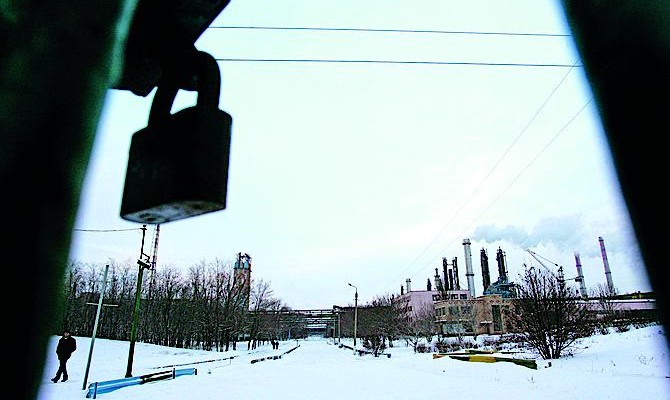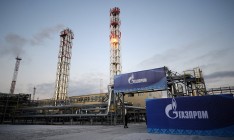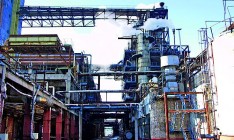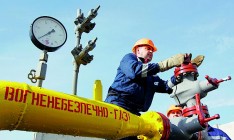Business
pressureGazprombank is demanding from Ostchem US $842.5 mn or 5.6 bn cu. m of gas

The nitrogen plants controlled by the company Ostchem owned by Dmytro Firtash are facing unpleasant situations one after the other. It barely fended off the threats of the Naftogaz company, which promised to cut off supplies of natural gas to the chemical plants controlled by the businessman, and the claims of the Russian Gazprombank from which the gas trading company Ostchem Holding Ltd. took out loans for the purchase of gas in 2013.
Gas in exchange for debts
On December 15, the bank declared that the loan and the accrued interest must be immediately paid back “due to the inability of Ostchem Holding Ltd. to fulfill its obligations to Gazprombank in accordance with the loan agreement to the tune of US $842.5 mn,” it reads on the website of Gazprombank. The company controlled by Firtash must repay this sum by December 30 of this year. Otherwise, “the bank will demand that the debt be repaid by the guarantors of the loan agreement – namely, four plants that produce mineral fertilizers owned by the Ostchem group”. The guarantors are the nitrogen plants controlled by Firtash – Stirol, Azot in Severodonetsk, the Cherkasy-based Azot and Rivnazot. These plants are obligated to pay back the pledges in the amount of 5.679 bn cu. m of natural gas in the underground gas storage facilities.
How the debt accrued
In November of last year the owner of the nitrogen plants Dmytro Firtash told the press that he took out a loan for the purchase of natural gas from Gazprom. “Indeed, we took out loans from Gazprombank. But it must be understood that neither Gazprombank, nor Gazprom did us any favors. Gazprom had a choice: either they pump the gas, or somebody else will. In other words, we resolved the issue not only for Ukraine, but also for Russia on ensuring the transit of gas,” the businessman said. He also said that the cost of fuel for his plants was US $268.5 mn for 1,000 cu. m. This was lower than the price for which Naftogaz of Ukraine received gas from Russia at that moment (US $410/1,000 cu. m).
By the way, the cost of this resource was not as low upon delivery to the plants of Ostchem. At the valves of nitrogen plants fuel was sold for US $430/1,000 t, which in terms of price was higher than the targeted mark-up and the transport component. However, Ostchem turned a profit on the difference between the purchasing price of Gazprom and the cost of shipment to the plant. In this way, the chemical plants guaranteed its owner profits mainly as a purchaser of gas and then as producers of fertilizers.
Firtash’ people keeping silent
Taking into account the volume of purchased gas – around 6 bn cu m and its cost – one can presume that the amount of the loan that Ostchem Holding Ltd. took out from Gazprombank is no less than US $1.3 bn and the outstanding debt is US $842.4 mn. All of a sudden Gazprombank decided to view Ostchem a problematic borrower, but did not explain why.
Gazprombank did not respond to the questions asked by journalists of Capital whether the property of the plants of the guarantors was a pledge for the loans. Ostchem and the Group DF owned by Dmytro Firtash refused to comment on the situation with the loan of Gazprombank.
Not enough gas to repay the loan
Russian industry analysts do not doubt that Gazprombank is not only trying to gain from the sale of gas: after the bank’s statement redistribution of Ukraine’s market of chemical products will follow. “What was bound to happen indeed happened – Gazprom is demanding the assets of chemical plants – i.e. the guarantors of the gas loan. I don’t see another explanation given that returning gas from Ukrainian reservoirs will be problematic. The fact is that they may not contain such volumes as the plants used gas to continue operating and produce fertilizers,” says the manager of a Russian consulting agency, who requested anonymity.
The data of Ukrtransgaz confirms that Ostchem does not have the necessary volume to settle accounts for its loans from Gazprombank. As of September, there were only 3.5 bn cu m of gas owned by Ostchem in the underground gas reservoirs of Ukrtransgaz. In October, Managing Director of Group DF Borys Krasnyanskiy informed that there are “around 4 billion cubic meters of gas of the company in the underground gas reservoirs”. Since then two operating plants controlled by Firtash – Cherkasy Azot and RivneAzot – used the gas from the reservoirs for the production of saltpeter. As a result, no more than 2.5-3 bn cu m remain in the reservoirs of the plants controlled by Firtash.
Partner of the Dominion law firm Mykhailo Honcharuk assumed that not only natural gas, but also property of the plants of the guarantors could have been used as a pledge for the loan of Gazprombank. “In this case, if one of the pledges is not sufficient to cover the debt, the lender can file a lawsuit to recover property or the shares of the company if they were under pledge,” the lawyer noted. Moreover, judging from the experience of Firtash, who won 11 bn cu m of gas in the reservoirs from the government of Yulia Tymoshenko, the time between the filing of a lawsuit and winning may be quite short.
Ukrainian experts in the gas industry asked by Capital believe the statement of Gazprombank is more of a political nature, though they do not rule out that it poses real threats to the chemical assets of Firtash. For example, people’s deputy of the VI convocation Oleksandr Hudyma, who worked in the Verkhovna Rada on issues of thermo-electric stations, nuclear policy and nuclear safety and today is an independent expert of the gas market, presumes that by virtue of this statement and the threat of recovering gas from the underground reservoirs Gazprom is continuing its economic war against Ukraine and is not only threatening the gas reserves, but also the country’s assets. “In this case, the government is obligated to intervene in the situation between the commercial structures involved and must not concede to Gazprom,” says Hudyma. “After all, this matter could result in Ukraine losing not only its gas stored in reservoirs, but also its chemical plants,” he emphasized.






 of the agreement of syndication with Financial Times Limited are strictly prohibited. Use of materials which refers to France-Presse, Reuters, Interfax-Ukraine, Ukrainian News, UNIAN agencies is strictly prohibited. Materials marked
of the agreement of syndication with Financial Times Limited are strictly prohibited. Use of materials which refers to France-Presse, Reuters, Interfax-Ukraine, Ukrainian News, UNIAN agencies is strictly prohibited. Materials marked  are published as advertisements.
are published as advertisements.